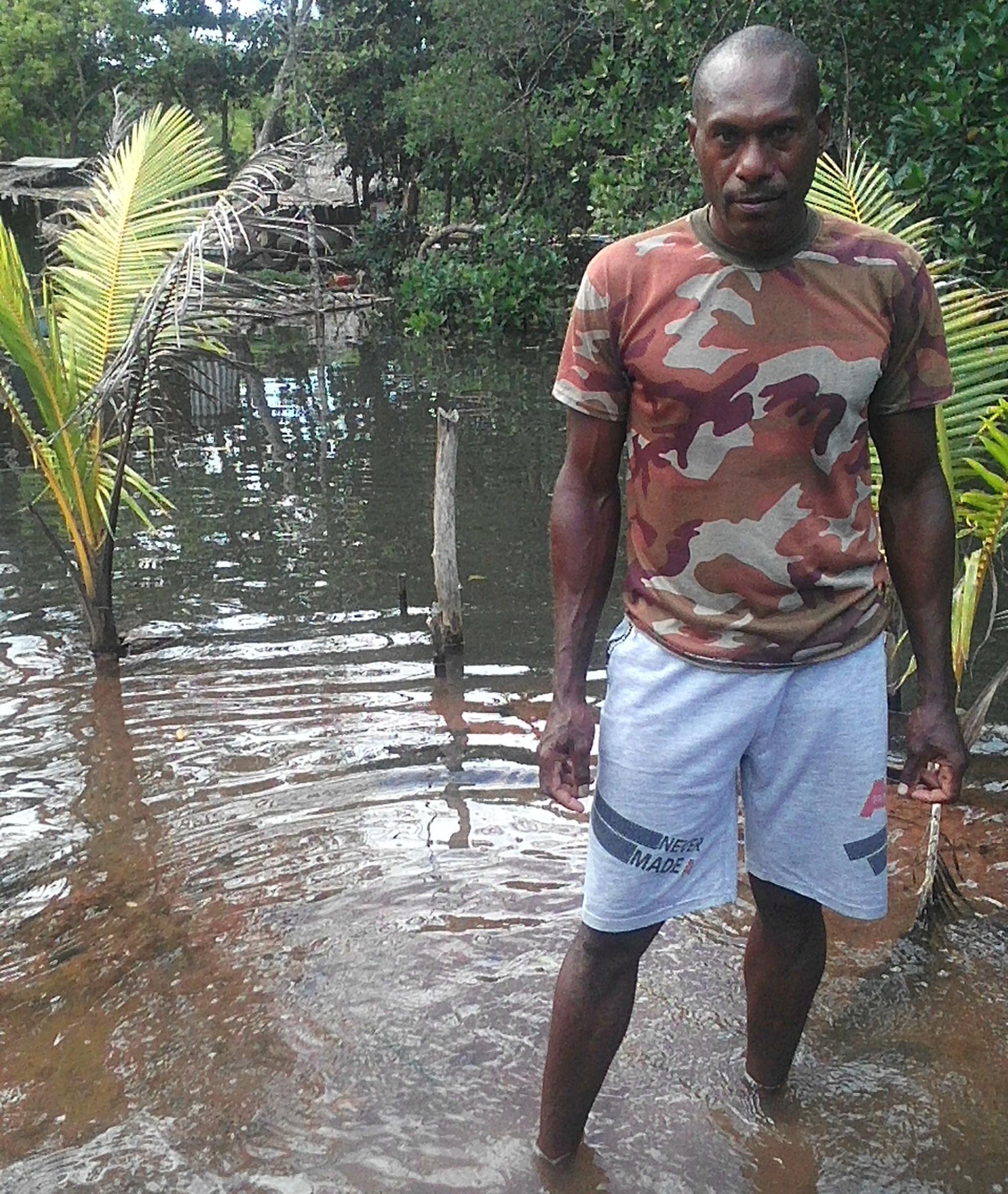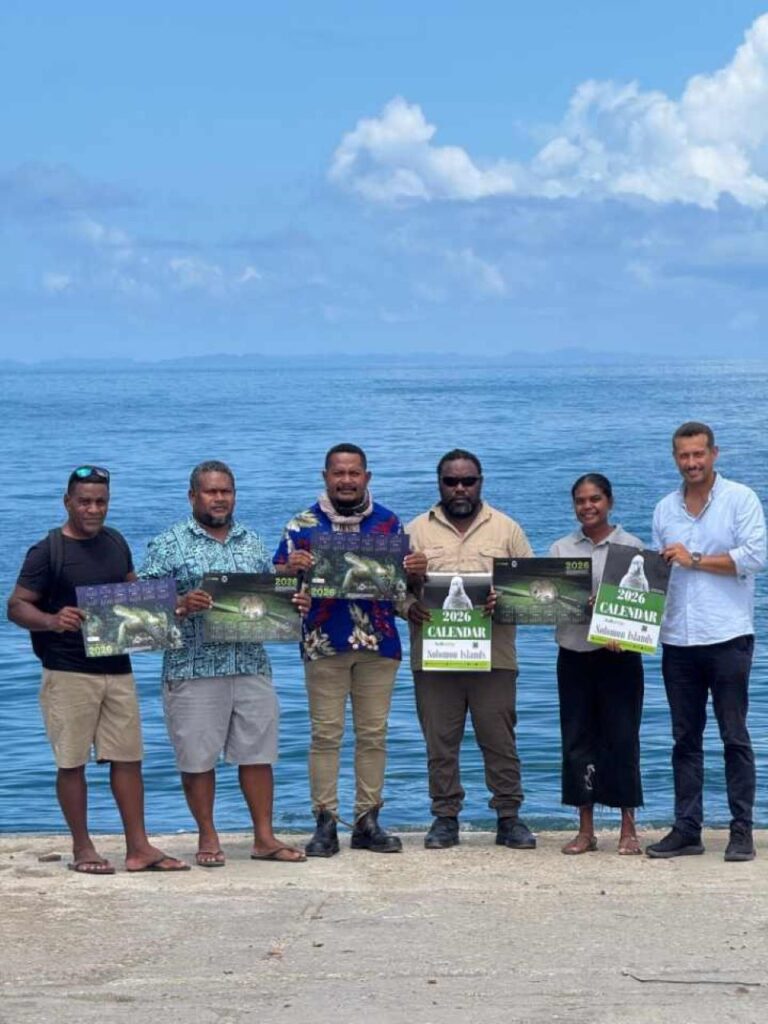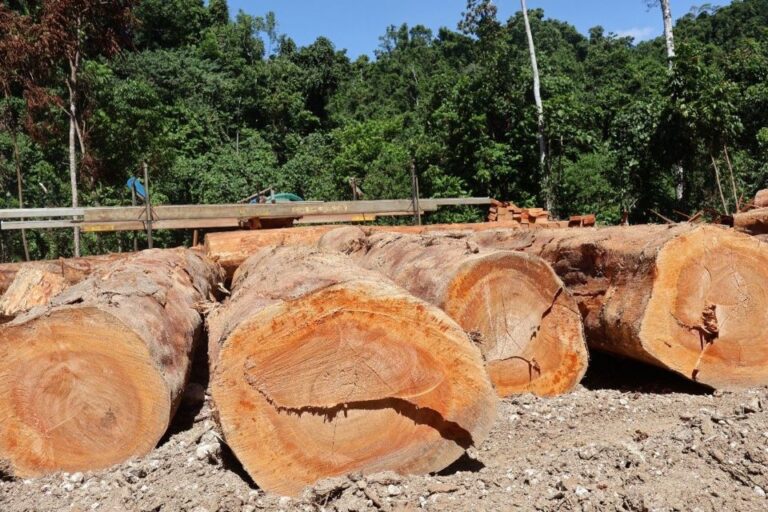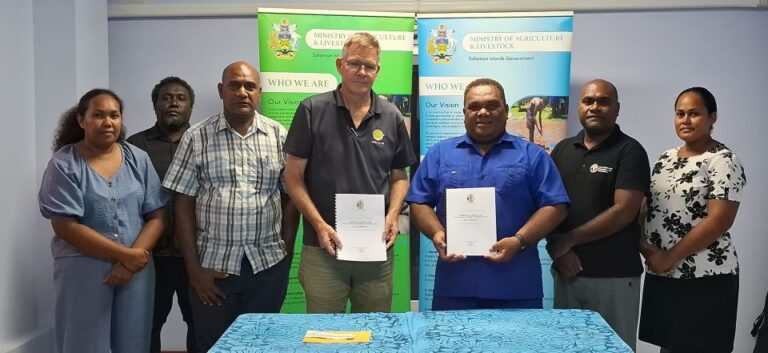BY KHAMA LINCOLN
FATHER of Four, Ben Blamoli, 46 from Temotu province, arrived in the Western Solomons in 2009.
About three years later he got married to a woman from fishery village and went to settle with his wife’s people in the coastline community adjacent to Gizo Town.
10 years on as a coastline dweller in the improvised community, he has witnessed changes triggered by the impact of climate change, as saltwater flows in and stays under his houses and never flows back compared to past years.
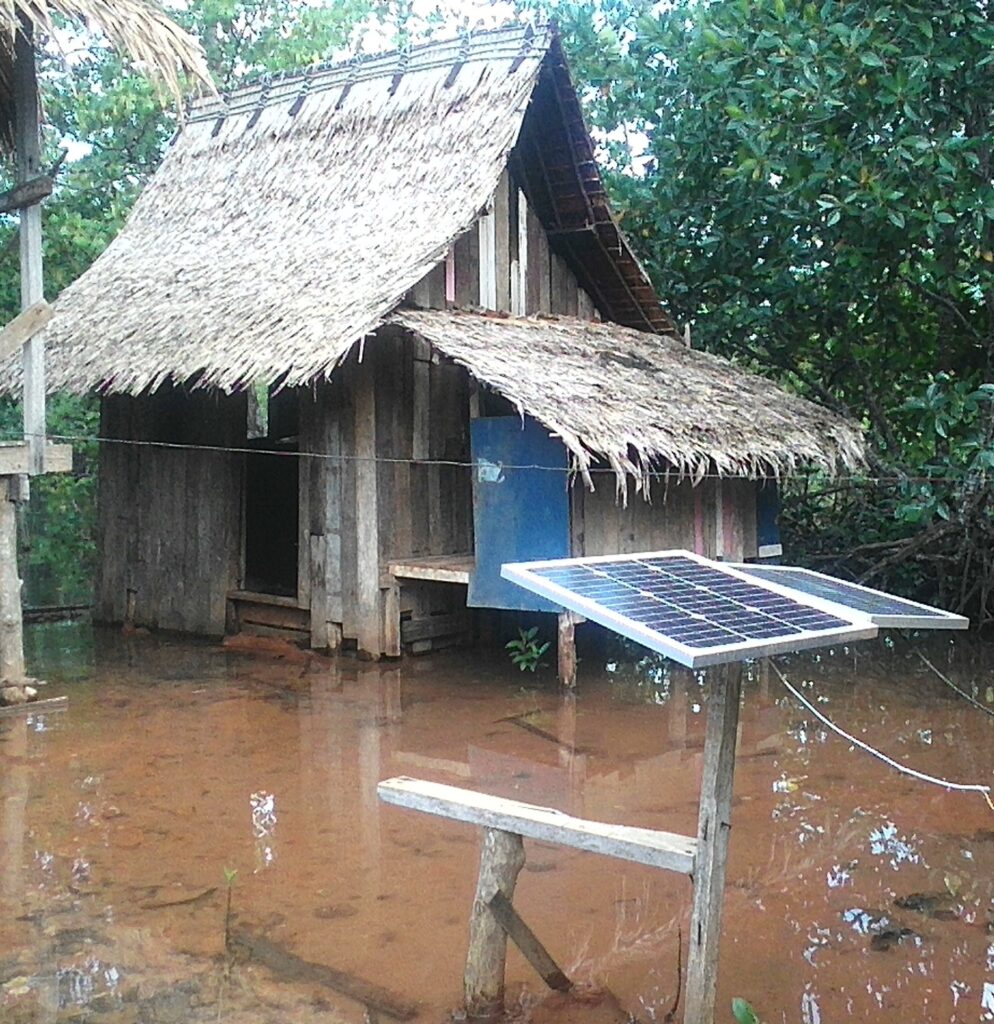
While we chat at his residence one afternoon, as the saline water moved under us, he showed the usual saltwater line in recent years.
He said, the community began to experience changes in the water level in 2019, and it was on last December 2021 that the saltwater level rises and covers new grounds.
“Now I’m watching the level of the salt water, and throw stones and fill up it with soil. I want to keep the ground dry, no matter the high tide, at least I can step on a dry ground.” Blamoli said.
“In the past years, I already planted Cucumber and Melon in this place now I’m no longer able to plant them.”
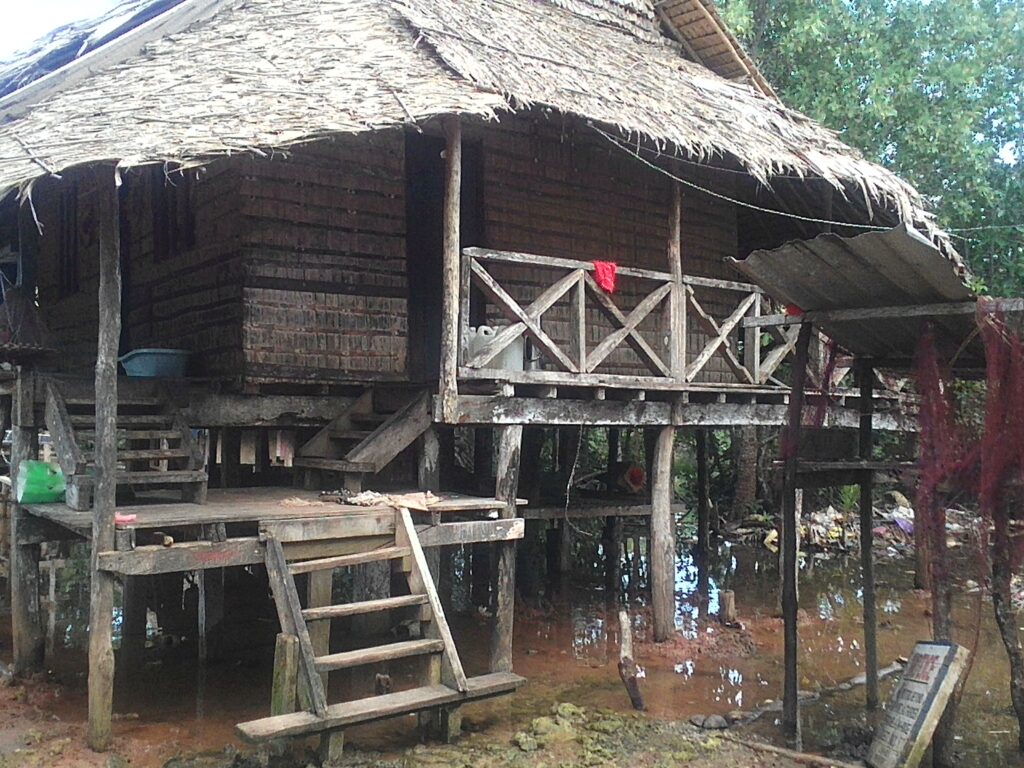
Some new coconut seedlings that he planted besides his house withered, while he tries to survive few remaining ones. He also walks to a raised pig pen with water level on his knees to feed hid pigs.
“I will build up this place with stones and gravel, after that I will add soil.” He said.
He said, his family helps him with reconstructing the area, but most of the time he tried by himself.
“I don’t want to move around and step into the water when the sea is rough and windy” He added.
He said, the sea also reached part of his Family’s food garden situated inside a bay, which is 20 minutes away from his home by dugout canoe.
He also run a small trade store selling basic items, and betel nuts, which he agreed was also affected by the impact of the COVID pandemic.
He observed that people don’t have enough money compared to past years and that customers taking goods on credit are becoming more frequent.
“When I started, my sales are okay, asking for credit started to increased last year, now it’s worse than last year.” He said.
Blamoli’s family and next-door relatives rely on a single PVC pipe without a tap for drinking water and water for cooking.
They catch flowing water with less pressure in an aluminum basin at the center of the coastline neighborhood, behind Mangroves.
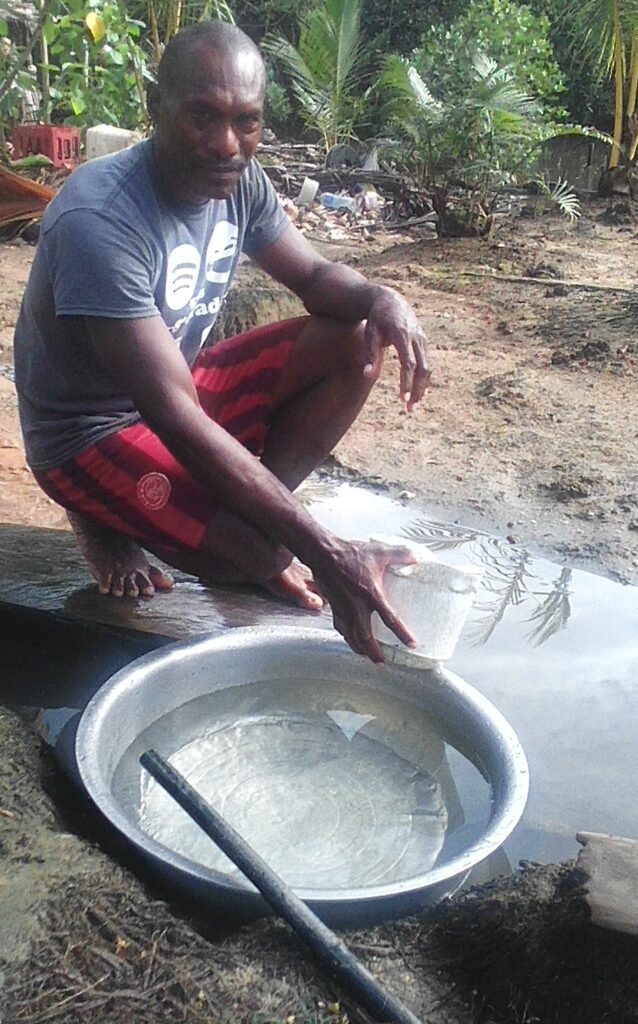
The source of the water is an old dam built by villages in late 1980’s with assistance from a former and late member of provincial assembly for Gizo ward. After the 2007 Tsunami, OXFAM international assisted the improvised community and repaired the water supply system with three stand pipes. The stand pipes are not in use for sometimes now.
Meanwhile, I also chatted with Te Papau Toki, he’s Gilbertese and younger than Blamoli. He also run a family trade store between Fishery and Nusa Baruku settlements.
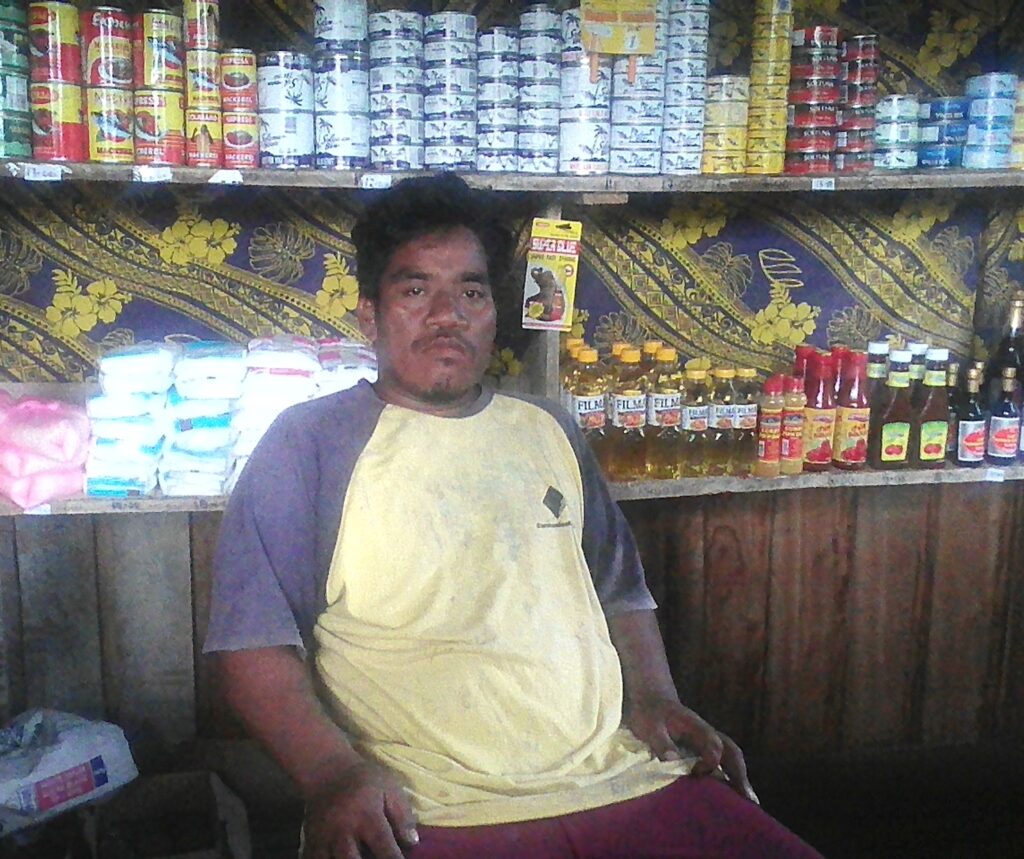
His shop is positioned inches away from a public footpath constructed by the Roman catholic mission, connecting the neighboring settlements.
Some of his usual customers are fishermen and women market vendors returning from Gizo Town.
He said, his shop opens from morning till11pm at night.
“Now, sometimes I only earn $100 dollars or less a day.” He said.
Toki dives from Gizo to Rarumana for fish as well. He said, some of his customers, also joined diving trips to meet the cost of what they’d owed him.
Concerning the sea level rise, he observed that changes on the level of water started three years ago and continues to rise.
“The saltwater does not go down; it continues to rise,” He observed.
“we don’t usually live here; our home is at the top of the hill, and we will stay there.”
Toki’s family like others living top hill and at the shoreline, walks to the Catholic Mission in Nusa Baruku settlement, to fetch drinking water from rainwater tank.
Now, with the on coming threat of the COVID-19 Community Transmission, adding on to that of the Climate Change issue, people like Blamoli and Toki in the rural communities plus all people in the country will have to adjust to the new normal bring about by the COVID introduction in the community – a new normal whereby COVID-19 and Climate Change is part of our everyday lives as experience in other countries in the world.

